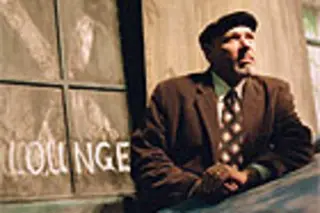You know by now, I'm sure, that the great playwright August Wilson has died. Here are stories in the LA Times, the BBC, and I read an excellent obiturary in the Guardian which you can find here. (Photo at left is by Genaro Molina of the LA Times.) Of his work, I've only ever seen the play Jitney on a live stage, at the Donmar Warehouse in London. This was some years back, now. I decided back then I'd been missing out and should see more. There was an "appreciation" of the man and his work, written by Charles McNulty in the LA Times Tuesday, which is (interestingly) somewhat careful and measured in its assessment. Here is a couple of paragraphs that I found stayed with me:
Wilson often referred in interviews to James Baldwin's call for a "profound articulation of the black tradition," and this imperative fueled his artistic ...














